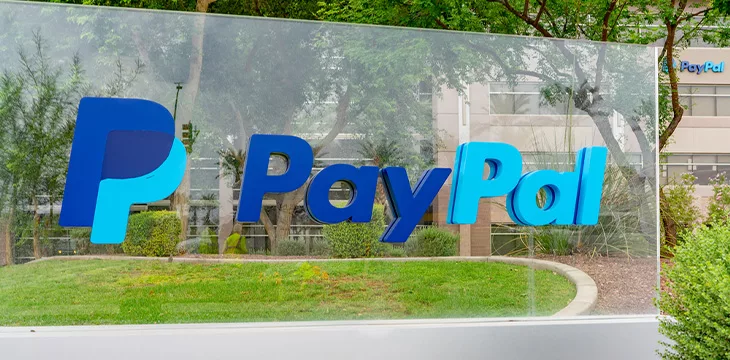|
Getting your Trinity Audio player ready...
|
Online payment giant PayPal (NASDAQ: PYPL) will no longer offer its user protection for non-fungible tokens (NFTs) worth over $10,000, the company has revealed in a policy update.
The update was quietly made on March 21 on the PayPal website, one media outlet noted. It removes NFTs from the Seller Protection Program, reversing a previous policy and exposing buyers and sellers to heightened risk when dealing with NFTs.
Under the new policy, PayPal will exclude NFT sales whose transaction amount exceeds $10,000. Those under this threshold will continue to be covered “unless the buyer claims it was an Unauthorized Transaction and the transaction meets all other eligibility requirements.”
PayPal also removed all NFT transactions, regardless of their value, from its Purchase Protection Program.
In a statement to a media outlet, a spokesperson for the company blamed the changes on the risky nature of the NFT industry.
“Given the uncertainty around proof of order [fulfillment] and other variables in this evolving industry, we are no longer providing buyer protection and are limiting seller protection for NFTs,” the spokesperson said.
As part of the protection programs, NFT buyers could be refunded if they paid through PayPal for tokens that failed to meet their advertisement description or weren’t delivered. Sellers who lost money to payment disputes or sham refund requests also stood to be refunded.
The blow by PayPal comes amid a resurgence in NFT trading volume after a drastic dip in 2023. Data from Crypto Slam shows that since October, the market has gradually sprung back to life as the overall digital currency market went on a bull rally. However, the trading volume has been trending lower since the turn of the year.
PayPal’s announcement also signals the company may be cooling its interest in NFTs after a few attempts to establish itself as an ally in the past two years. Last year, it filed a patent with the USPTO for an NFT marketplace that would list tokens representing art, music, event tickets, images, property deeds and more.
However, the company’s NFT efforts have failed to keep up with its continued investment in other blockchain products, including stablecoins and digital currencies.
Watch: Micropayments, NFT & solving digital marketing problems with Luke Rohenaz

 02-14-2026
02-14-2026 




